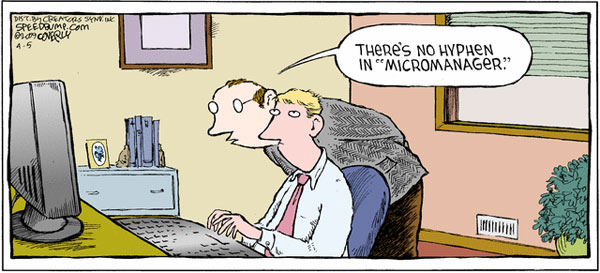She started slowly. The first slide displayed on the screen. She spoke the opening lines of the presentation with strength and conviction. She was a powerful communicator. It was a conference room packed with her leadership team members. She was rolling out the biggest change initiative her team had ever seen. This was the moment to share the plan and build consensus with them. If she did not deliver a convincing presentation the new strategy would stall. She knew what was required. Next slide. Her tone and intensity increased. The energy in the room went up dramatically. She smiled at her key stakeholders knowing full well that the presentation was working. They clearly understood her vision.

I am not a communications expert
All The Way Leadership! believes that clearly communicating is what strong leaders do. First, you should ask yourself the question, can you clearly communicate with your stakeholders? If the answer is no, then you have work to do. If the answer is yes, I recommend you still spend some time thinking about the best way to communicate clearly with your stakeholders. I am not a communication expert and do not pretend to be one. If you want to go deep into that topic find someone who is. Instead, I simply advise that all leaders ponder a few powerful questions to better communicate with their stakeholders. These Points to Ponder (PP) are found below.

PP#1- How well do you know the person or stakeholders you are communicating with?
Most leaders communicate with different audiences throughout the day. The first point to ponder is how well do you know the person or stakeholders you are communicating with. Crucial conversations with someone you do not know well is a hard thing to do. Leading a meeting with your team who you interact with on a regular basis is much different than communicating bad news to your senior leadership team. Don’t be shocked if you end up communicating with stakeholders who do not know you at all. Prepare accordingly. Simply understanding the audience can make or break your ability to communicate clearly with your stakeholders.

Powerful communicators tailor their message to the audience
Leaders who are powerful communicators tailor their message. They think about the setting in advance. If you are meeting with your team it is probably okay to be less formal and spend more time talking. When you are briefing senior leaders about a tough topic you will want to keep your communication succinct. Don’t muddy the waters by using too many words. If you only have a few minutes on the agenda, then take only a few minutes. Don’t expect more time. Weak communicators disregard the audience. They do not prepare ahead of time and say whatever pops into their minds. Don’t be like that. I have witnessed many leaders say something stupid simply because they did not tailor their message to the audience, nor prepare beforehand.

PP#2 – Do you get a response, inputs, or feedback from stakeholders?
Leaders need to know what their stakeholders think and how they feel about many topics. Do they understand your vision? Does the strategy make sense? What are their thoughts about the implementation plan? You will not receive a response or gather sufficient feedback from stakeholders if you do not ask for it. It is critical that you get inputs from others in order to build consensus and move your team forward. If all you do is broadcast when communicating and do not spend time listening to your stakeholders then you are doomed as a leader. No one likes a leader who does all the talking. Getting buy-in and ideas from others is critical for success.

Powerful communicators know how to ask their stakeholders for feedback
Leaders who are powerful communicators know how to ask their stakeholders for feedback. They pause during meetings to see if anyone has a question. If they sense their stakeholders do not understand something a strong leader will seek feedback. Is this the right approach? Does it make sense? The bigger the audience the harder it is to gather feedback. Some stakeholders are reluctant to engage until you ask them, especially in a large group. In other situations, you may receive more questions than you have time to answer them. I am not suggesting that there is one method that is the best for getting inputs. Rather, I am recommending that you think about how to ask for stakeholder feedback beforehand. The best leaders I worked with over the years were masters at getting the thoughts, ideas, and feelings of their stakeholders.

PP#3 – Is this interaction a normally planned activity?
The third point to ponder is whether or not the interaction is a normally planned activity like a regular team meeting. Or is it something different than the usual setting. Perhaps a once and done type situation. For example, it is normal for a leader to talk about performance with their team members on a regular basis. Perhaps you sit down monthly with every member of your team to talk about how they are doing. These interactions are different than sharing the results of an annual review with a team member or letting him know his annual salary increase. The preparation required for normal planned activities is much different than special events. Something to consider if you want to become a strong leader.

Powerful communicators prepare accordingly for special events
Powerful communicators understand that special events require more preparation than normal. They invest the time and energy to make sure they are ready for action when it counts most. For example, I would spend a lot more time preparing for a briefing to my senior leadership team than I would a routine weekly meeting with my team. The senior leaders you work with may not see you in action that often. Make the most of the interaction by preparing so that you are at your best. The last thing you want is to choke in a high stakes situation. Your leadership reputation will suffer. Strong leaders are powerful communicators. They prepare for special events and deliver the goods. It is one of the traits that separates great leaders from good ones.

Take the time to ponder powerful questions to clearly communicate
Strong leaders understand the importance of clearly communicating and connecting with their stakeholders. They ask powerful questions to better communicate with their stakeholders. Powerful communicators ponder how well they know the audience. They get feedback from stakeholders and make the most of special situations. Be that kind of leader. Ask the right questions before you communicate with your stakeholders. They will help make you a powerful communicator, and stronger leader.
The art of communication is the language of leadership .
James Humes
ATW! is designed to make you a better leader
I hope you join me on this journey to raise up the next generation of leaders. The world is in desperate need of more great leaders. Women and men who lead with confidence, clarity, and creativity. It’s time to become the leader that your world needs. Let’s go All The Way!

















